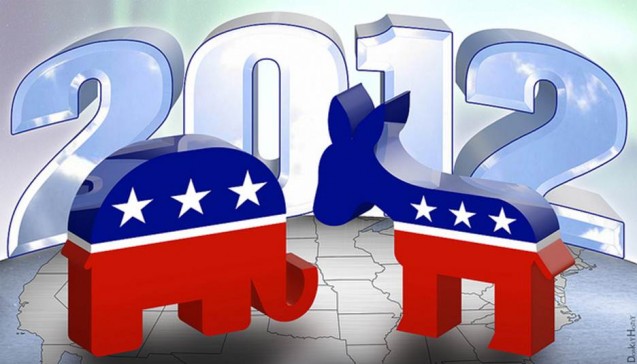
There’s no arguing with the fact that social media played a major role in Obama’s 2008 presidential victory. While the McCain campaign relied on traditional voter mobilization methods, the Obama team was able to leverage an unprecedented social networking campaign in order to engage with younger demographics and ultimately clinch the win.
It’s clear that the 2012 Republican primary candidates took these lessons to heart, as social media involvement has never been higher during an election cycle. To understand more about the evolution of social networking participation within the electoral process, let’s take a look at how each of the current Republican primary candidates is using these user-driven sites to advance his own agenda:

Current Position: As the presumed Republican candidacy front-runner and one of the wealthiest politicians ever to seek the nation’s highest office, it’s safe to extrapolate that social media isn’t as high on Romney’s “to do” list as it is for the other candidates in this race.
That’s not to say that social media doesn’t matter to the Romney campaign – and, truly, his active presence on Facebook and Twitter indicates that his team takes these opportunities seriously. However, with the amount of mainstream media coverage Romney already receives, focusing on social networking as a top priority simply isn’t necessary as it is for Rick Santorum or Ron Paul.
Future Challenges: As the likely Republican candidate in the 2012 general election, Romney must focus less on what his current primary challengers are doing and more on how President Obama is using social media effectively in his campaign. In addition to Facebook and Twitter, the President is also active on Google+ and Tumblr – both territories that Romney has not yet ventured into in a significant way.
As the general election draws closer, it seems likely that we’ll see Romney either enter into these new arenas or engage on the traditional social networking sites at a higher level in order to court undecided voters.

Current Position: As Rick Santorum has gained momentum within the primary race, following his largely-symbolic victories in Minnesota, Missouri and Colorado on February 8th, the social networking buzz surrounding this “Religious Right” candidate has grown as well.
To see the impact of these wins on Santorum’s social media presence, we can look to recent research conducted by MSNBC and data analysis agency Crimson Hexagon, which has been tracking and measuring sentiment regarding political candidates across Facebook and Twitter using a tool called ForSight throughout this primary season. Essentially, this tool allows MSNBC to weed out neutral updates (for example, those sharing campaign schedules and news reports) to observe only those tweets and status updates that share either a positive or negative opinion about a candidate.
The news giant’s latest reports have been promising for the Santorum campaign. Nearly 41% of all social networking messages expressing an opinion about a Republican candidate have been about Santorum in the weeks since February 8th. This is a significant shift, as before his trio of primary wins, Romney had been the preferred topic of discussion, with six opinion tweets for every one about Santorum.
Unfortunately, this increased attention hasn’t all been good, as this same survey found that only 38 percent of the measured opinion updates shared sentiments in support of Santorum, while the remaining 62 percent focused on his weaknesses as a candidate.
Future Challenges: With Santorum’s campaign on the rise, his challenge will be to persuade remaining voters who believe he is too religious or too far right to win in the general election. And while social networking sites could play a role in facilitating some of these changes, this message will ultimately need to be integrated into all aspects of his campaign in order to be effective.

Current Position: Though the Newt Gingrich campaign has been shaken in the past few weeks as a result of poor primary and debate performance, there’s no arguing with the fact that he’s leading the Republican candidates on Twitter and other social networking sites.
According to an analysis of the candidates’ social networking styles conducted by iContact:
“While all candidates are utilizing Twitter, Gingrich carries the highest number of engagers across the network with 1.38 million followers – more than five times the number of the campaign with the second largest Twitter community. He tweets often, but more importantly, Gingrich seems to provide content his community wants.”
Though there have been some allegations of the Gingrich campaign artificially inflating its follower and subscriber numbers, the number of tweets he’s released and the amount of engagement demonstrated on his social networking profiles conclusively shows his team’s masterful approach to social media.
Future Challenges: Simply feeding readers what they want to hear won’t win the Republican primary – let alone the November 2012 general election. The biggest challenge facing the Gingrich campaign from a social networking perspective will be determining how to leverage the existing relationships built through these websites to turn readers into motivated voters who will adopt Newt’s policy directives and go to the polls to support them.

Current Position: For Ron Paul, an engaging social media presence isn’t just a strategy pulled from past political playbooks – it’s a crucial way to get his message heard in a mainstream media environment that often deems his Libertarian policies to “out there” to receive coverage.
Indeed, much of this distance can be attributing to Paul’s own branding of his identity and policies as being outside of mainstream Republican ideology. Because he isn’t taken as seriously as the three other candidates, he frequently receives less time during televised debates and fewer mentions from the major news networks. In order to attract attention and build his follower base, Paul must find another way to stand out – and that’s often by riling up the internet with inflammatory social networking site posts.
In an interesting comparison, consider two surprisingly different social media messages made by money leader Mitt Romney and wild-child Ron Paul, as documented by Dan Gauss of Koroberi…
First, a recent tweet by Mitt Romney:
“Congratulations to my fellow Republicans tonight. We’ll continue to take our message of liberty & prosperity to every corner of the country”
Compared to Ron Paul’s recent Facebook message:
“The national political establishment and their pals in the national media will do ANYTHING to silence our message of liberty. It’s up to you and me to stop them. So if you haven’t yet done so, please pledge to give as much as you can to Ron Paul’s February 14 Money Bomb.”
The difference is obvious. Where social media remains a single tool in Mitt Romney’s tool chest, it’s a much higher stakes game for Ron Paul – translating to more urgent, highly emotional messages.
Future Challenges: Although social networking sites represent a good opportunity for Paul to attract voters directly, outside of the mainstream media, his challenge will be to balance his “viral potential” posts with those that offer enough substance to convince newly attracted followers to consider him as a serious candidate.
Image: DonkeyHotey





